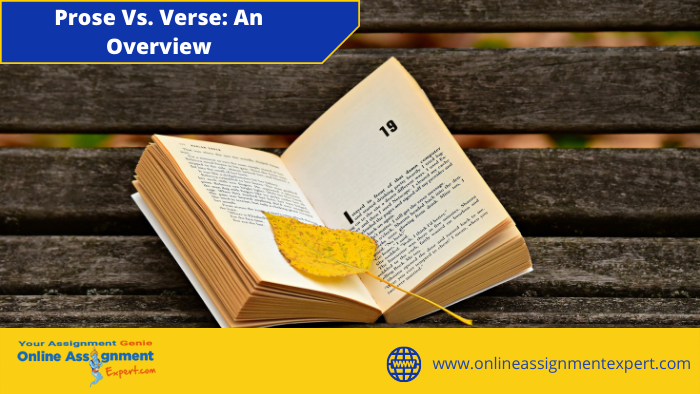
December 29, 2021
Colloquialism Examples And Their Distinct Characteristics
No 1 Assignment Help
is only a click away.
Guide 2022 | Colloquialism Examples and Their Distinct Characteristics!
What does the language called which is used in an informal way in everyday life? Is it Colloquialism or (kuh-LOH-kwee-uh-liz-um)? What do we say it’s formal or informal language? If there's one part of life that the Internet has had a significant impact on, it's the way people communicate with one another around the world. Nonetheless, there appears to be a growing communication gap between ordinary browsers and hard-core surfers. This is visible in their way of communication, notably in their use of slang terminology. The buzzwords in this succinct Colloquialism Examples and Their Distinct Characteristics that follow are among the most frequently used.
.png)
Colloquialism: Meaning and Examples
The word colloquium comes from the Latin colloquium, which means "to speak together" or "to converse." Distinct dialects or linguistic varieties are spoken in particular areas are typically the sources of colloquialisms.
Colloquialism is defined as the use of informal language or local slang in literary works. Because colloquialism is the common language of society, it will allow the author to quickly penetrate the audience's thinking. The author might readily express ideas to a general audience by employing colloquialism examples. Many writers in English literature use colloquialism on purpose to give their work a more authentic feel. The use of idioms and aphorisms falls under the category of colloquialism.
The following are colloquialism examples:
- Aphorisms and proverbs ("You only have one life.")
- Swearing ("Damn!")
- Idioms ("You've hit the nail on the head," "She chickened out," etc.)
- Localised idioms ("Bless your heart," for example.)
- Nonstandard grammatical or syntactic constructions ("I ain't done anything”!)
Authors employ colloquialism in conversation and narration in literature to illustrate characters conversing in a realistic manner or to give a character or narrative a distinct and interesting voice. You can also seek assignment help from professionals who have great expertise in understanding the topic.
Colloquialism examples
Everyday colloquialism examples
- Y’all – You all
- Wanna – Want to
- Gonna – Going to
- Knock yourself out – Helping yourself
- Earning a packet – Earning a lot of money
- Buzz off – Go away
- Bamboozle – To cheat
- Be blue – To sulk
- Go nuts – Get very angry
Australian colloquialism examples
- Woop – An isolated town
- Cobber – a good friend
- Mongrel – an irritating person
- Deadset – A statement that is absolutely true
- Furphy – Rumors or Gossips
- Flat out – Very busy situation
- Arvo – Afternoon
- Swag – A bag used for sleeping
- Bludger – A very lazy person
- Rapt – Being truly pleased
British colloquialism examples
- Whinge – To sulk and continuously complain
- Ace – A remark for excellence
- Tosh – A false statement
- Anorak – A person who is very expert in a tough subject
- Swot – A geek
- Blimey – the factor of surprise
- Strop – to repent
- Knackered – A very fatigued condition
- Chuffed – very excited about anything.
- Gutted – Very disappointed at something
- Codswallop – An untrue statement
- Gobsmacked – absolutely surprised
- Dodgy – insecure state
- Dog’s dinner – A very untidy and chaotic situation
- Bloke – A layman
- Smarmy – A deceitful person
- Boot – Trunk of a vehicle
- Skive – to bunk school or workplace
- Brolly – an umbrella
- Posh – A very luxurious or fancy thing
- Cheeky – A very bold person (that generally cause intimidation to others)
- Poppycock – A very ridiculous and untrue statement
- Cheers – Thank You
- Pea Souper – A very foggy day
- Chinwag – A very friendly conversation
- Lurgy – Being sick with symptoms of flu or cold
- Chockablock – A completely saturated or filled condition
What Role Does Colloquialism Play In A Language?
Splitting-up the words
As per assignment help professionals- Colloquialism has given literature and writers in particular communities a new perspective. For literature students, it is common knowledge that using colloquialism makes it easier to portray strong emotions. It provides the character in the literature with a distinct texture. The use of colloquialism in literature is well received by the audience since it demonstrates that the authors have a thorough understanding of the society they are writing about.
Gives life to a piece of writing that has been written.
When individuals speak the same language for a long time, different dialects and colloquialism emerge in society. As a result, each dialect becomes an essential part of the society's identity. The author might employ colloquialism to make the character connect with the readers in a more authentic way. The use of French and Belgian slang was commonly seen.
The same word might have several different meanings.
The same term might have distinct meanings in different dialects. These terms are often extremely common in nature, yet in dialects, they have highly different and unique meanings. In the British English language, the word pants refer to undergarments, whereas in the American English language, the same word refers to trousers. Similarly, in the United States, the word coke refers to Coca-Cola, whereas in the United Kingdom, it refers to any soft drink.
Unique words that are exclusively found in a certain dialect
In many languages, you can find words that are distinctive to that dialect and cannot be found in other languages. The term jawn is used by the inhabitants of Philadelphia to describe anything, place, or person. The use of such a word is uncommon among English speakers all across the world.
Why Should You Use Colloquialisms in Your Writing?
As authors, we're really on the lookout for new ways to improve our craft, whether through books, online courses, or blog articles.
If you're willing to receive it, inspiration can come from anywhere.
Look to other people's (public) talks for colloquialisms to use in your dialogue and personality development.
Using colloquial language in your storey will make this sound more realistic and give it a more local character.
Since real people employ colloquialisms in everyday conversation, credible language mirrors this reality to give the reader a sense of familiarity. This familiarity facilitates the formation of linkages.
How Do You Tell The Difference Between Colloquialism And Jargon And Slang?
Many individuals conflate the terms "colloquialism" and "jargon" or "slang."
Jargon
Such phrases are usually associated with a particular subject or academic area, making them difficult to comprehend for those who are not familiar with it. Jargon is a term used by authorities in a specific sector or by academics in a specialised topic. In the academic realm, words like gallery have extremely varied connotations. It refers to a collection of literature or novels that still needs to be proofread before being published.
Knife pleat, on the other hand, is a term used frequently in the fashion industry to describe the small folds generated on a wardrobe. Mise en place is another term used in the culinary business to describe when a meal is being prepared.
Slang
Slang is the polar opposite of jargon, and it is far more informal. Slangs were only found among a select group of respondents who shared the same subculture. The use of slang can be used to communicate a broad range of powerful emotions. Slangs are linked to culture, unlike colloquialism, which is spatially determined. Slangs in the English language includes words like togs for swimwear and Barbie for a BBQ in Australia, to name a few. Take, for example, the film Mean Girls from Hollywood. Gretchen's character frequently utilises the word fetch to convey a laid-back attitude.
Despite the differences between Slang and Jargon and the colloquialism that we've discussed, there are some notable commonalities between the two. Many academics even contend that Jargons and slang are colloquialism varieties.
Related Blogs
Subscribe Our Newsletter & get Information about latest courses









